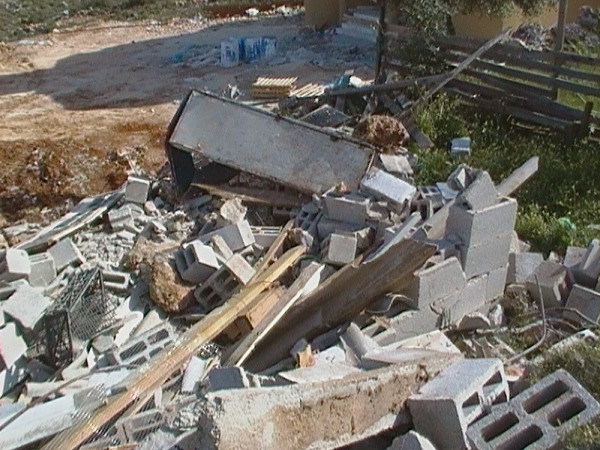Tag: Demolition order
-
Demolitions in Bruqin: “If you really want peace, you wouldn’t take what’s mine”
2nd April 2014 | International Solidarity Movement, Nablus Team | Bruqin, Occupied Palestine On the 1st of April, at approximately 5.30 AM, a bulldozer and eight military jeeps arrived in the village of Bruqin close to the city of Nablus. The bulldozer first destroyed a farmers shed, killing the ten rabbits inside. The destruction continued…
-
Protest against demolition orders in Izbit Tabib
14th November 2013 | International Solidarity Movement, Nablus Team | Izbit Tabib, Occupied Palestine Several years ago the village of Izbit Tabib, east of Qalqiliya was served with demolition orders by the Israeli Army. The orders would mean destruction of 33 houses (73% of the village) and the village school. Two houses have already been…
-
“We will not give up; to give up is to die” – Susiya resists mass demolition orders
27th June 2013 | International Solidarity Movement, Khalil Team | Susiya, Occupied Palestine Today, June 27, 2013, the Israeli Civil Administration served thirty-four demolition orders in the Susiya village, which is in Area C and surrounded by the Israeli colony of Suseya. Due to previous demolition orders, every existing structure in the village is now…


